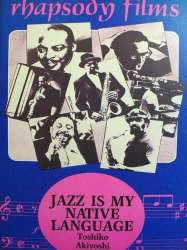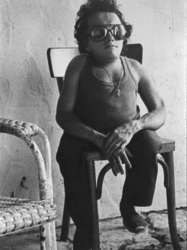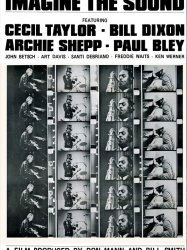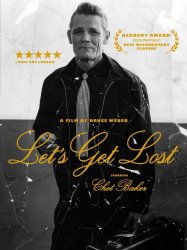Southern Crossing (1980)

If you like this film, let us know!
- Infos
- Casting
- Technical infos
- Photos
- Videos
- Film quotes
- Characters
- Music
- Awards
Directed by
Robert Guillemot
Produced by
Richard Bradley
Executive Producers
Australian Film Commission, Richard Bradley Productions
Based on
1st Sydney International Music Festival January 1980
Starring
Dave Brubeck, Herbie Mann
Sound Recording
Ron Purvis, Ted Otten
Cinematography
Guy Furner
Editing by
Barry Fawcett
Production Company
Richard Bradley Productions
Distributed by
Richard Bradley Productions
Release date(s)
29 November 1980
Running time
92 minutes
Country
Australia
Southern Crossing is a 1980 Australian contemporary jazz, documentary film directed by Robert Guillemot and produced by Richard Bradley. The film documents the 1980 International Music Festival, which was staged during the week of 7–14 January 1980 at the Regent Theatre in Sydney.
The artists featured in the film were The Dave Brubeck Quartet, Herbie Mann and The Family of Mann, The Les McCann Band, Howie Smith and the Jazz Co-op, the Toshiko Akiyoshi – Lew Tabackin Big Band of Australian All Stars, Galapagos Duck, Judy Bailey Quintet with John Sangster, Ricky May and Friends and The Young Northside Big Band. The famous American jazz critic and author Leonard Feather, who also attended the festival, provided the commentary in the film. The film also used locations around Sydney Harbour and featured surfing scenes with surfer Terry Richardson and a jam session at the famous Basement Jazz Restaurant in Sydney.
Southern Crossing was financed by the Australian Film Commission and Richard Bradley Productions along with sponsorship investment from Qantas and Peter Stuyvesant International. The film was released theatrically in Australia in 1980 and later in New Zealand in 1983. It received good critical reviews in Australia, New Zealand, England, and the United States. Mike Harris in Variety called it "the definitive jazz film", while Ray Stanley in Screen International called the film "Australia's Jazz on a Summer 's Day" (referring to the 1960 documentary). Eric Meyers wrote in the National Times that the film was "cleverly filmed and well worth seeing," although he complained in his review that it was a missed opportunity to feature more local artists, especially those playing traditional jazz. Jazz enthusiast Kim Bonython wrote in The News that "the Aussie film makers covered it with skill and imagination and I recommend it to jazz buffs and anyone interested in movies for their own sake."
In 1981, television rights were sold via MIPTV in Cannes and NAPTE in New York. That same year, the film was screened at two international film festivals in Barcelona and Warsaw. There was a limited video release through Diners Club in 1984 and eventually a limited DVD release in 2007 over 25 years after it was made. The Sydney Morning Herald critic John Shand gave the film three stars after reviewing the DVD as a solid production. He also added that the Regent Theater where it was filmed was "so wonderful" they had to demolish it in references to the theater's heritage factor. Since completion of the film in 1980 the distributor has been Richard Bradley Productions who produced the poster and all associated advertising, publicity and sales.
Comments
Leave comment :
Suggestions of similar film to Southern Crossing
There are 8313 films with the same themes (including 26 films with the same 5 themes than Southern Crossing), to have finally 70 suggestions of similar films.If you liked Southern Crossing, you will probably like those similar films :

Return to Gorée (2007)
, 1h52Origin Suisse
Genres Documentary, Musical
Themes Films about slavery, Films about music and musicians, Documentary films about law, Documentary films about music and musicians, Documentaire sur une personnalité, Jazz films, Musical films
Rating67%





Retour à Gorée raconte le périple du chanteur africain Youssou N'Dour sur les traces des esclaves noirs et de la musique qu'ils ont inventée : le jazz. Son défi: rapporter en Afrique un répertoire de jazz et le chanter à Gorée, l'île symbole de la traite négrière, en hommage aux victimes de l'esclavage. Guidé dans sa quête par le pianiste Moncef Genoud, Youssou N'Dour parcourt les États-Unis et l'Europe.
 , 58minutes
, 58minutesOrigin USA
Genres Documentary, Musical
Themes Films about music and musicians, Documentary films about music and musicians, Documentaire sur une personnalité, Jazz films, Musical films
 , 1h30
, 1h30Directed by Charlotte Zwerin
Origin USA
Genres Documentary, Musical
Themes Films about music and musicians, Documentary films about music and musicians, Documentaire sur une personnalité, Jazz films, Musical films
Actors Samuel E. Wright
Rating74%





Entre 1967 et 1968, les freres Michael et Christian Blackwood suivent et filment pendant six mois Thelonious Monk pendant sa tournee europeenne. Il en resulte une emission pour la television allemande d'une heure. Douze ans plus tard ils en parlent a Bruce Ricker qui contacte aussitot Charlotte Zwerin, la realisatrice. Le financement est difficile mais grace a l'aide de Clint Eastwood, le film peut se realiser. Aux documents des freres Blackwod ont ete ajoutes des documents d'archives et des interviews recentes de ses musiciens.

Michel Petrucciani (2011)
, 1h42Directed by Michael Radford
Origin France
Genres Documentary, Musical
Themes Films about music and musicians, Documentary films about music and musicians, Documentaire sur une personnalité, Jazz films, Musical films
Actors Vanessa Guide
Rating74%





Le film retrace le parcours du célèbre musicien de jazz français Michel Petrucciani (1962-1999).

Sun Ra: A Joyful Noise (1980)
Directed by Robert Mugge
Genres Documentary, Musical
Themes Films about music and musicians, Documentary films about music and musicians, Documentaire sur une personnalité, Jazz films, Musical films
Rating72%





 , 1h33
, 1h33Origin USA
Genres Documentary
Themes Films about music and musicians, Documentary films about music and musicians, Documentaire sur une personnalité, Jazz films, Musical films
Actors John Cameron Mitchell, Annie Ross
Rating78%






Jazz in Turkey (2012)
, 1h40Genres Documentary
Themes Films about music and musicians, Documentary films about music and musicians, Documentaire sur une personnalité, Jazz films, Musical films
Rating71%






Imagine the Sound (1981)
, 1h30Origin Canada
Genres Documentary, Musical
Themes Films about music and musicians, Documentary films about music and musicians, Documentaire sur une personnalité, Jazz films, Musical films
Rating69%





 , 1h12
, 1h12Origin Burkina faso
Genres Documentary
Themes Films about music and musicians, Documentary films about music and musicians, Documentaire sur une personnalité, Jazz films, Musical films
In 1961, in a little village in the middle of the Guinean tropical forest, a music band is born. This band will soon become one of the biggest orchestras of modern Africa. It is Bembeya Jazz. This orchestra, symbolizing the Guinean revolution of Ségou Touré, managed to rock the whole African continent with their music. Forty years later, we go back to its roots. Besides the difficulties, the “Bembeya mystery” is still alive: the legend continues!

Let's Get Lost (1988)
, 2hDirected by Bruce Weber
Origin USA
Genres Musical theatre, Documentary, Musical
Themes Films about music and musicians, Documentary films about music and musicians, Documentaire sur une personnalité, Jazz films, Musical films
Actors Michael Peter Balzary, Chris Isaak, Lisa Marie, Rodney Harvey, Robbi Chong, Scott Coffey
Rating76%





A group of Baker fans, ranging from ex-associates to ex-wives and children, talk about the man. Weber’s film traces the man’s career from the 1950s, playing with jazz greats like Charlie Parker, Gerry Mulligan, and Russ Freeman, to the 1980s, when his heroin addiction and domestic indifference kept him in Europe. By juxtaposing these two decades, Weber presents a sharp contrast between the younger, handsome Baker — the statuesque idol who resembled a mix of James Dean and Jack Kerouac — to what he became, “a seamy looking drugstore cowboy-cum-derelict,” as J. Hoberman put it in his Village Voice review.
 Connection
Connection